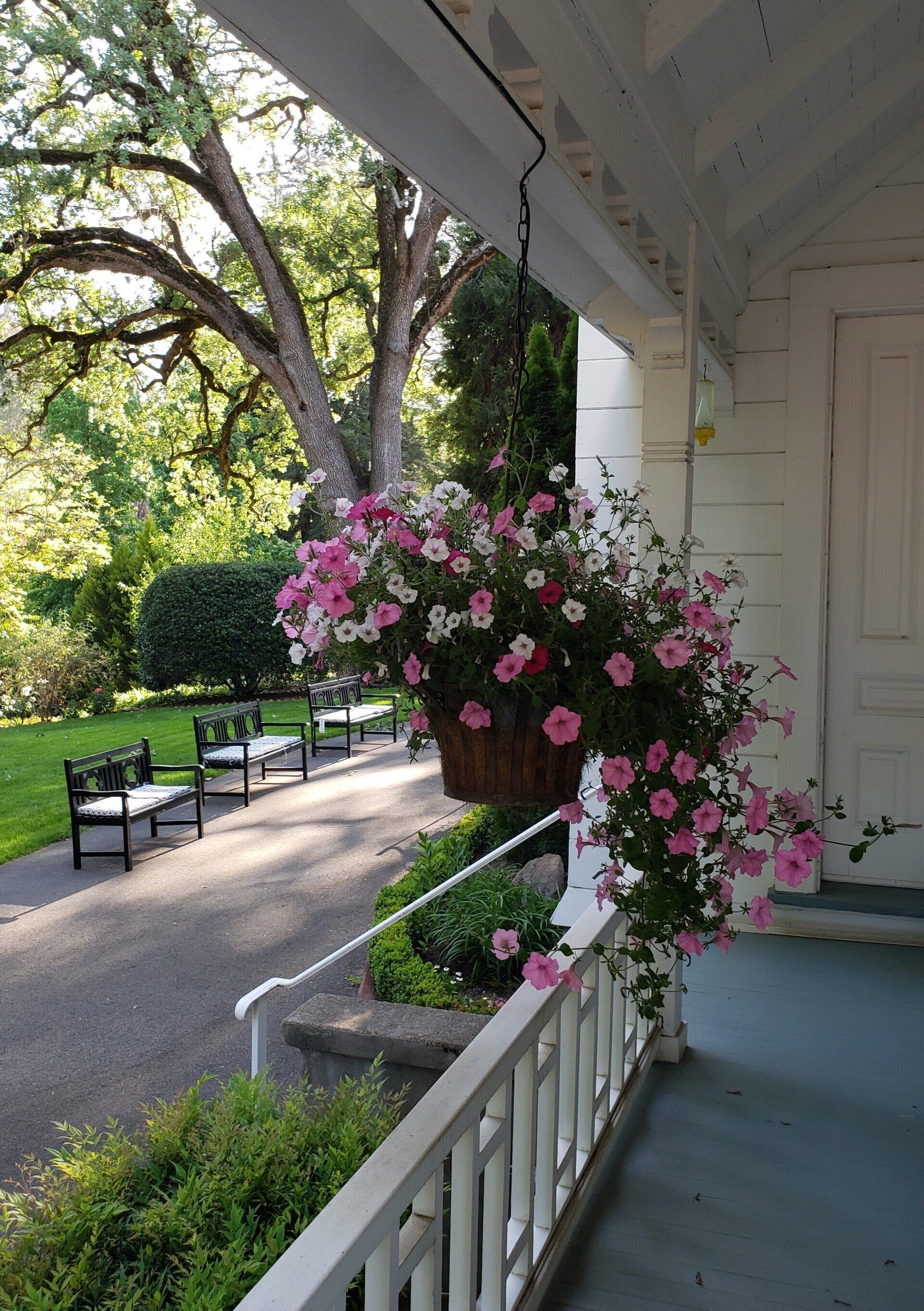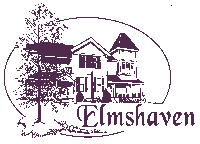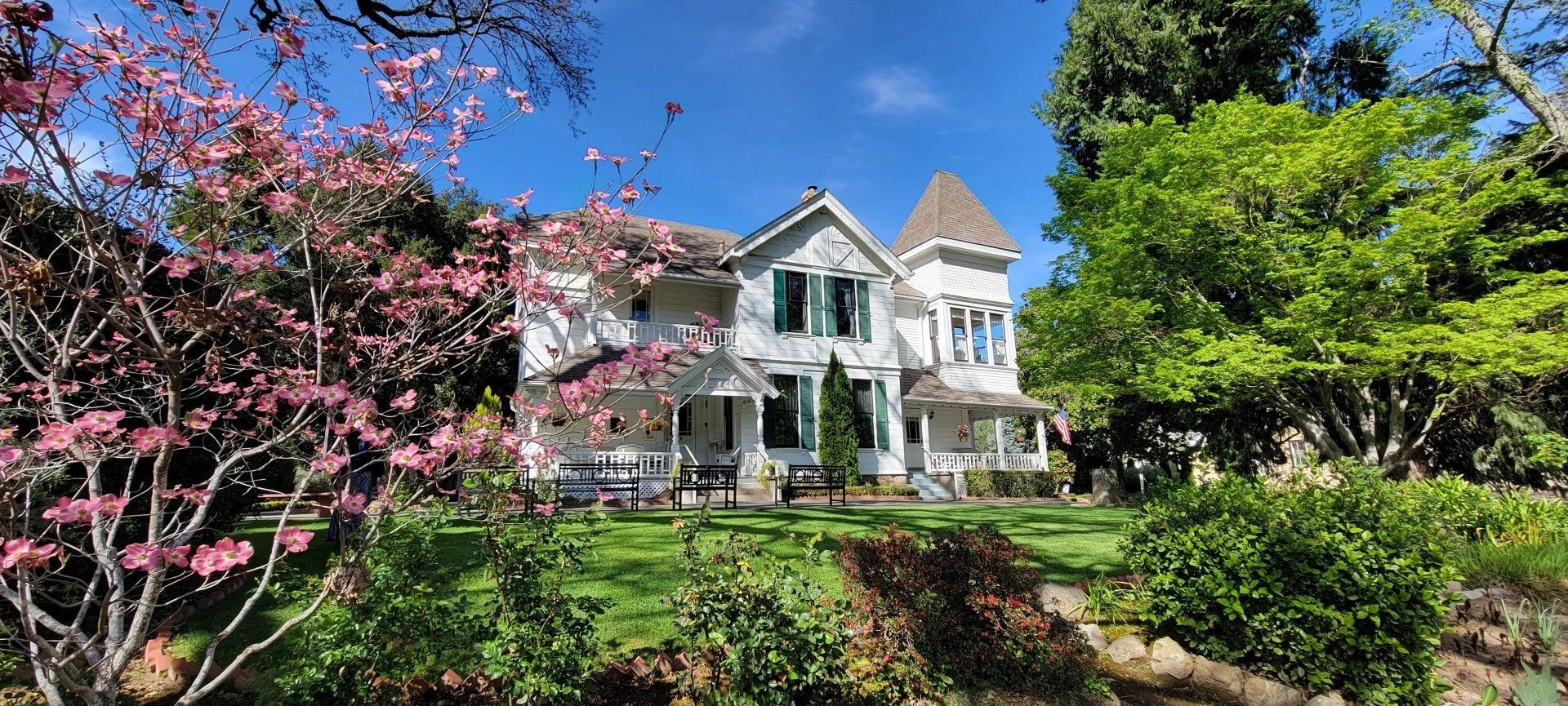Elmshaven, recognized as a National Historical site, is located at the upper end of Napa Valley, in northern California. It was built by Robert Pratt in the 1880s, a railroad magnate of San Francisco, who used the estate as his summer home.
In 1900, Ellen G. White, world renowned Christian author, publisher, and speaker, purchased the property, and lived here until her death in 1915. She named the home Elmshaven, because of its quiet surroundings and many Elm trees.
Visit this lovely Victorian Home to hear the story of
.....where the angels sang.
This stately country Victorian residence--
known since 1900 as Elmshaven -- was built in 1885 by railroad developer and executive Robert H. Pratt and served as a vacation home to the Pratt family until 1900. Ellen G. White, one of the founders of the Seventh-day Adventist Church, purchased the home in 1900 and lived here until her death in 1915. During her life, White wrote about 60 religious books, including nine volumes she penned in the upper writing room at Elmshaven.
Today, the home is furnished much as it was when Ellen White lived and worked here. In fact, many of the furnishings belonged to her, and still sit where she placed them. Elmshaven is owned and maintained by the Seventh-day Adventist Church, but is open to the public.
Whether you are interested in architecture, antiques, church history, or just want to see how some people lived 100 years ago, you are welcome to enjoy the peaceful environment of Elmshaven. Elmshaven's reserved style and middle class furnishings create a sense of simplicity and balance -- no doubt a reflection of Ellen White, herself.
Ellen White recommended complete commitment to God, and declared that true religion was best demonstrated in simple living and practical service to others. In addition to her call to return to the Bible, she traveled the world advising millions of women, not yet allowed to vote, to live sensibly and develop all their potential. She spoke out against tight corsets and heavy dresses that, she said, dragged in the filth on the ground and brought disease into homes. In the many schools she founded she insisted that neither men nor women should be helplessly dependant upon the other.
"Since both men and women have a part in home-making, boys as well as girls should gain a knowledge of household duties," Ellen White advised in 1903 in her seminal book on education. "To make a bed and put a room in order, to wash dishes, to prepare a meal, to wash and repair his own clothing, is a training that need not make any boy less manly; it will make him happier and more useful. And if girls, in turn, could learn to harness and drive a horse, and to use the saw and the hammer, as well as the rake and the hoe, they would be better fitted to meet the emergencies of life." {Education, p. 216}
Practical and sensible, in lectures and in books sold door to door, Mrs. White, who lost two children of her own due to sickness, urged people to avoid the poisonous medicines of the day (which often included strychnine and arsenic) and opt instead for fresh air, pure water, exercise, and a vegetarian diet.
It is no surprise then, that Elmshaven is a practical, middle class home: simple, balanced, tasteful. Enjoy a quick tour on line, then come and sample the quiet beauty of Elmshaven in person.










